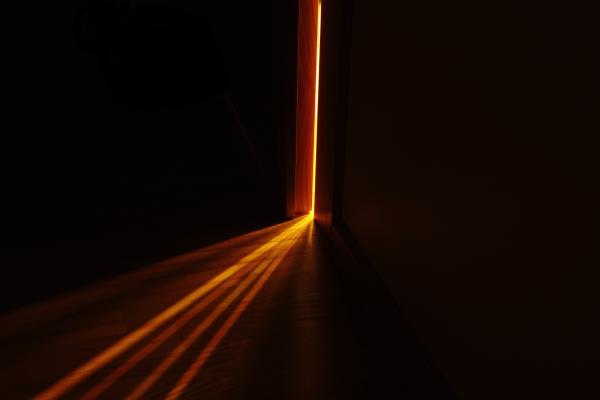Not long ago, I listened to a man speak about his trip to a certain African country. His story was peppered with descriptions like “war-torn" and "broken justice system." He talked about lack of access to education and corrupt government systems. With a sprinkling of words that regurgitated many of the labels Western countries bestow on African nations, he reduced the fullness of a people, a place, and a country created by God to a single dimension. He then shared the vision God gave him to help set prisoners free, build a school, and bring hope to the country.
While others sat in awe of this man’s work, I cringed at the unfolding of an old narrative used time and time again to describe countries on the African continent.
Whether or not the phrase “dark place,” is used, the implication is there. People’s words and pictures, the media, and even the pulpit tell us that the African continent is filled with some of the darkest places in the world. And those countries are in desperate need of light.
My husband, a man born and raised in Zimbabwe, often mentions how the weight of this perception of hopelessness wants to snatch away the pride he may feel in his background.
“How can I be proud when all people can offer is their pity?” he wonders.
My husband’s concern speaks to the inherent problem with the negative labels we have for this continent. When an entire region of the world becomes defined by such limited images and vocabulary, when this part of the world is seen as existing in dark shadows, we rob people of God-given dignity. We reinforce hierarchical structures put in place in generations past that reduce people and places to roles like “giver” and “receiver.” And we ignore the way those titles often double for roles like “those with hope” and “those in need of hope.”
Ultimately, we learn to overlook the light already present in these places. We come to think that our responsibility is to bring light when instead we should bear witness to a flame that already exists. In reality, where God is, there is light. If this whole created earth belongs to the Lord, there is no place his light doesn’t send forth a warm glow.
I used to volunteer with an organization called PEER Servants. PEER is an acronym for Partnering for Economic Empowerment and Renewal. PEER Servants partners with indigenous Christian microfinance institutions that want to help transform their communities and empower others to do the same. During my time as a volunteer, I learned about a woman in South Africa who used the profits from her business to begin a nursery school for her community. I read about a man in Uganda who wanted to expand his business so he could provide more jobs for his neighbors. These stories spread hope to my North Carolina home, a hope as warm as a rising sun.
In the first chapter of the biblical book of John, Nathanael says to Phillip, “Can anything good come out of Nazareth?” to which Phillip answers, “Come and see.”
Based on the typical narrative the West gives the African countries, the question might become, “Can anything good come out of the African continent?” And I would answer, “Come and see.”
Come and see stories of forgiveness and reconciliation bubbling from Rwanda, stories of micro entrepreneurship changing lives in Zambia, stories across the continent of the exponential growth of the church, stories of tenacious people overcoming adversity and loving others in the name of Christ. Stories of light that spreads like a holy flame.
Power imbalances in our world give the West excess control over the stories of this continent. As a result, the African nations bear the burden of being viewed through the lens of negative labels and little more.
Thus, I believe it is time that we in the West acknowledge and confess that we have used our broken society as the standard of light and dark, the determination of who should feel proud and who should receive pity. When we look to Christ, who is the true measure, we have an opportunity to recognize a greater truth. The truth is not that the countries forming the African continent exist in a greater cloak of darkness and despair and need our light. Instead, our whole world exists as a shadow of what it could be and groans for the restorative power of Christ.
And still there is light.
Come and see. Come and see the light that streaks across the African continent. If we want to crush hierarchies in our thinking and in the thinking of future generations, if we want to move towards a world with restoration of full dignity for all, we must shed the one-dimensional language bestowed on a whole group of nations and their people. Instead we must look for the light that exists there and springs forth from those lands. When we find that sacred glow — as we surely will — we must celebrate the light and let those stories illuminate a new narrative.
Got something to say about what you're reading? We value your feedback!

